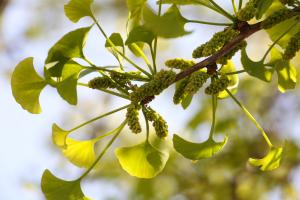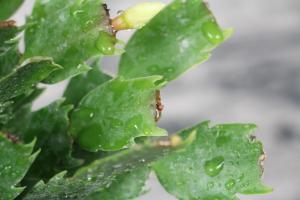Introduction
Tomato hornworms are a major pest of tomato plants, but they are not limited to just eating tomatoes. In fact, these pests can be found on a wide range of plants. In this article, we will explore what other plants tomato hornworms eat and what you can do to protect your garden.
Plants That Are Affected
While tomato plants are the most commonly affected by hornworms, these pests can also be found on other plants in the nightshade family, including peppers, eggplants, and potatoes. Hornworms have also been known to consume other types of plants, such as tobacco and moonflowers.
Harm Caused By Hornworms
Hornworms can cause significant damage to plants by consuming large amounts of foliage. This can weaken the plant and reduce its ability to produce fruit. In severe cases, hornworms can completely defoliate a plant. Additionally, hornworms can transmit diseases to plants, further worsening their health.
Identifying Hornworms
Hornworms are large, green caterpillars with a distinctive horn on their rear end. They can be difficult to spot on plants, as they blend in well with foliage. If you suspect you have a hornworm infestation, carefully inspect your plants for signs of damage and check the undersides of leaves for the caterpillars.
Controlling Hornworms
There are several methods of controlling hornworms in the garden. One approach is to manually remove the caterpillars from plants and dispose of them. You can also introduce natural predators of hornworms, such as parasitic wasps and birds, to your garden.
Another option is to use insecticides specifically designed to target hornworms. However, be sure to follow the label instructions carefully and use caution when applying pesticides, as they can harm beneficial insects and wildlife.
Preventative Measures
Preventing hornworms from entering your garden in the first place is the best way to avoid damage to your plants. One approach is to use row covers to physically exclude the pests from your plants. Additionally, be sure to maintain healthy soil and plants, as strong, healthy plants are less susceptible to pest damage.
Conclusion
While tomato hornworms are a significant threat to tomato plants, they can also damage other types of plants in your garden. By being vigilant about identifying and controlling hornworms, you can protect your plants and enjoy a bountiful harvest.

 how many times do yo...
how many times do yo... how many planted tre...
how many planted tre... how many pine trees ...
how many pine trees ... how many pecan trees...
how many pecan trees... how many plants comp...
how many plants comp... how many plants can ...
how many plants can ... how many plants and ...
how many plants and ... how many pepper plan...
how many pepper plan...
































